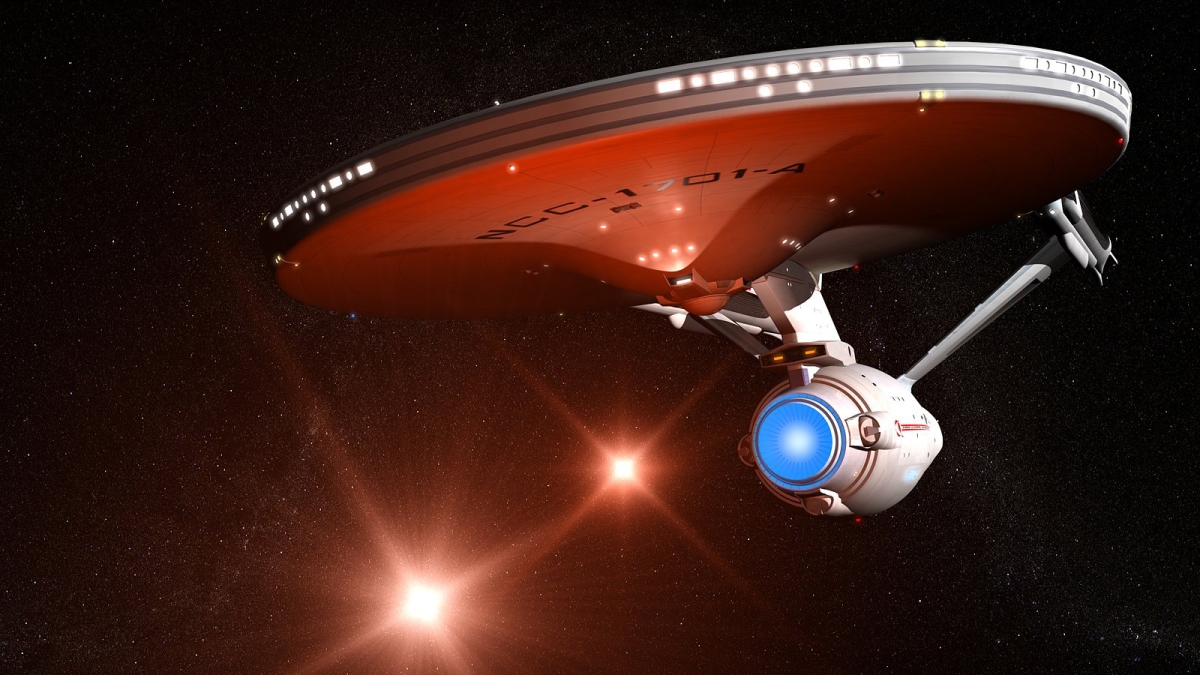Back in the 1970s, Dave Williams came home from school every day, parked himself in front of the TV, and watched "Star Trek" reruns five days a week. On Saturday mornings he watched the animated series.
Now Williams is a planetary geologist at Arizona State University. He explores strange new worlds, seeks out new life and new civilizations, and boldly goes where no one has gone before. He has worked on a Venus mission, a lunar mission, an outer planets mission, a Mars mission, an asteroid mission and a dwarf planet mission.
"Star Trek" is “what really led me to my career,” Williams said.
With that genesis in mind, Williams will be teaching a class this fall titled “Star Trek and Humanity’s Future in Space.”
The class will be centered around the question, “How can we create or improve the human future in space, informed by the 'Star Trek' media franchise?”
Williams will use ideas from the "Star Trek" universe of TV shows, movies and books combined with peer-reviewed research materials to explore problems related to humanity’s future living and working in space.
Sample topics may include leadership; life in a postscarcity economy; the role of meritocracy in human achievement; life on spaceships, space stations and colonies; how science and engineering foster deep space exploration; new technologies for power, propulsion, food production and medicine to enable human survival on alien worlds; war, peace and international relations among spacefaring countries; and other topics. (And there may be tribbles.)
“'Star Trek' is just going to be an inspiration and aspiration, something to trigger people's imaginations to ask questions and do research,” Williams said. “For example, suppose somebody who was interested in astrobiology — life in the universe — watches an episode of 'Star Trek' like 'The Devil in the Dark' from the original series where they have a silicon-based life form — the Horta — that would inspire them to go online to Google scholar and look up what scientific articles have been published about the possibilities of silicon-based life. And I actually know that there have been peer-reviewed, published papers on that whole subject. So that would be the 'Star Trek' part of it: watching an episode.”
Equally important is what the class is not. It’s not a media analysis class, or a trivia competition (if it was, good luck beating the instructor). Full episodes will not be screened during class. That will be part of the homework. It’s a science class intended to focus on problems, solutions and questions relevant to real life in humanity’s future in space.
Williams is not the only person working in space who was inspired by "Star Trek." NASA astronauts have appeared in episodes. A few of the engineers in the School of Earth and Space Exploration were galvanized by the series.
“The connection between 'Star Trek' and the space program and its inspiration, particularly to planetary science, is quite broad,” Williams said. “When I came to ASU, most of the planetary geology folks were 'Star Trek' fans.”
Sign up information is below. Wearing a red shirt to class will not alter chances of successful completion. And never forget the immortal words of Spock: "Logic is the beginning of wisdom, not the end."
The class is offered by the Interplanetary Initiative, a panuniversity effort paving the way for humanity in space.
Class information:
Fall 2021. Credit hours: 3. Class meets Thursdays from 1:30 to 4 p.m. (with breaks).
The four classes described below all meet together. Graduate students, register for SES 598.
Note that the titles in the registration system are not yet updated — see specific course numbers below.
- IPI 296 Section # 88751: Inquiry.
- IPI 496 Section # 95179: Advanced Inquiry.
- SES 294 Section # 95382: Inquiry (SESE undergraduates).
- SES 598 Section # 95383: Advanced Inquiry (SESE graduate students).
Students in Advanced Inquiry will conceive of and execute a related independent project.
For more information email David.Williams@asu.edu.
Top image courtesy of ViacomCBS.
More Science and technology

Hack like you 'meme' it
What do pepperoni pizza, cat memes and an online dojo have in common?It turns out, these are all essential elements of a great cybersecurity hacking competition.And experts at Arizona State…

ASU professor breeds new tomato variety, the 'Desert Dew'
In an era defined by climate volatility and resource scarcity, researchers are developing crops that can survive — and thrive — under pressure.One such innovation is the newly released tomato variety…

Science meets play: ASU researcher makes developmental science hands-on for families
On a Friday morning at the Edna Vihel Arts Center in Tempe, toddlers dip paint brushes into bright colors, decorating paper fish. Nearby, children chase bubbles and move to music, while…


